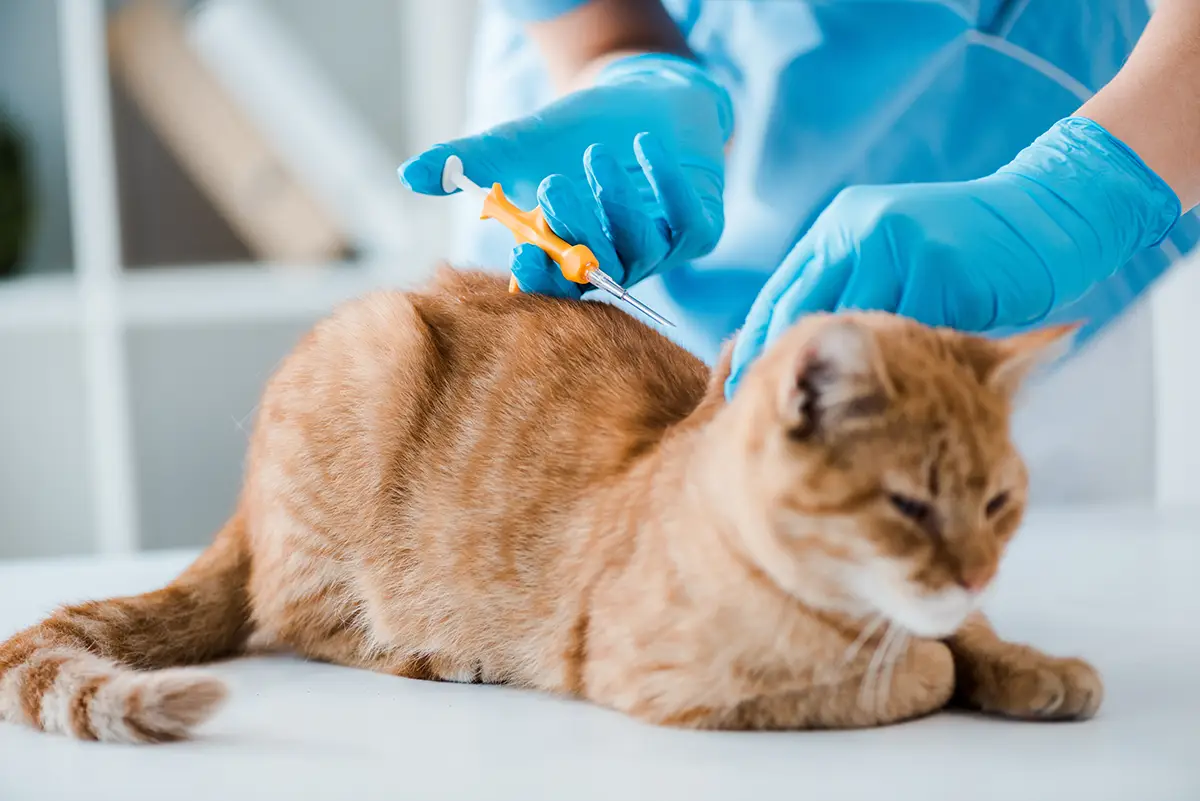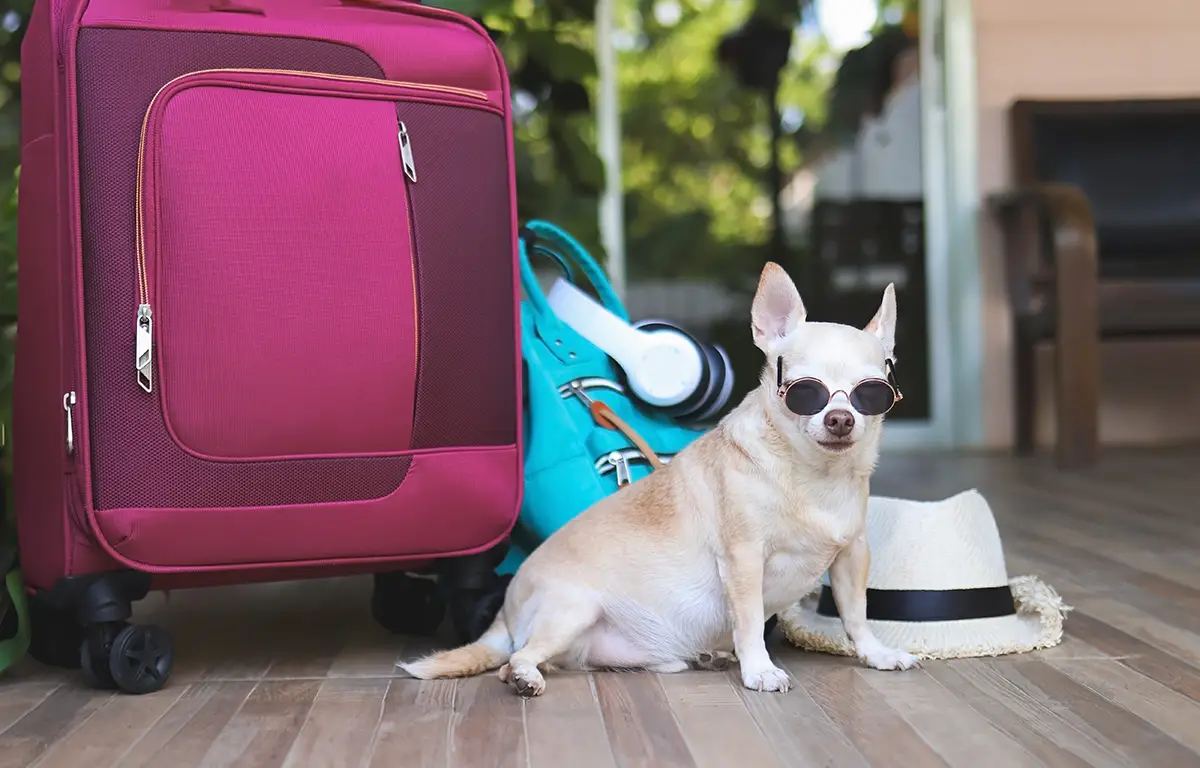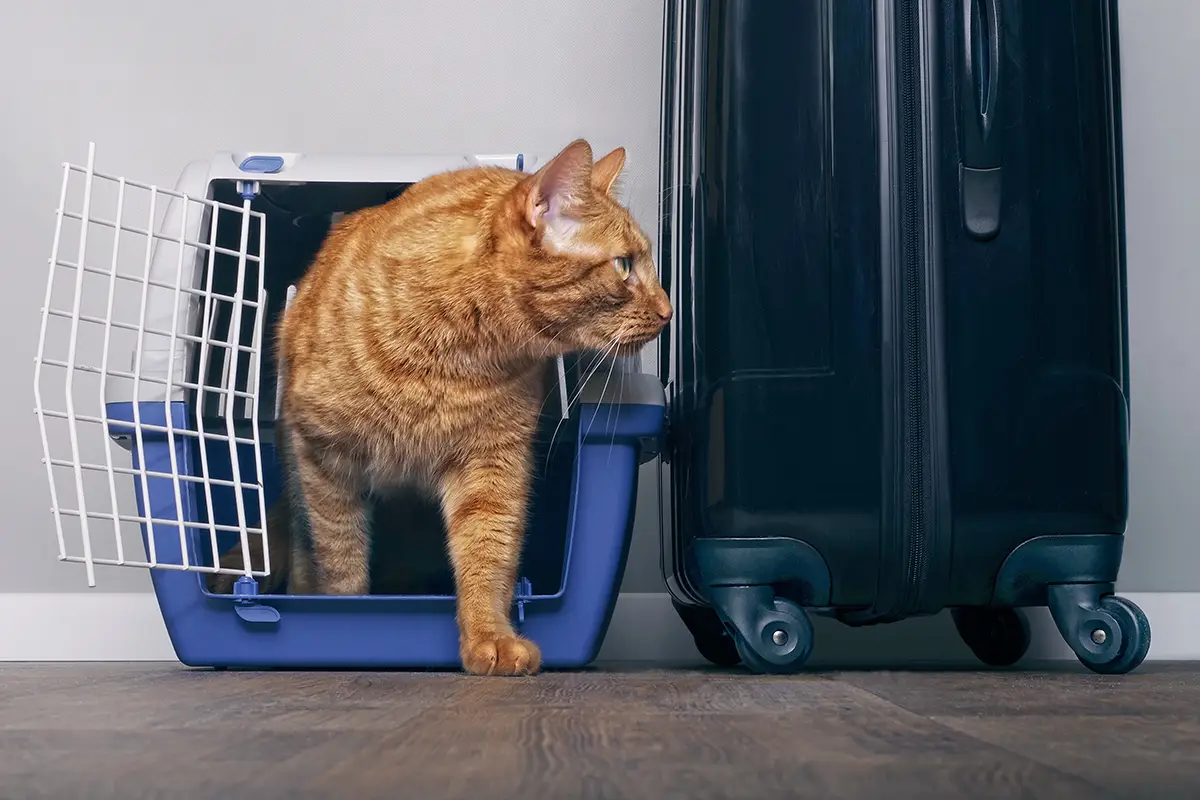
Relocating to a new country is an exciting adventure, but when you have pets, the journey requires extra planning and consideration. Portugal, with its sunny climate, beautiful landscapes, and pet-friendly culture, is an attractive destination for pet owners. Whether you have a dog, cat, bird, or even a lizard, bringing your beloved companion along is certainly possible.
This guide provides all the essential information you need to successfully move to Portugal with your best friend. We will cover the regulations for both EU and non-EU citizens, document requirements, transportation methods, and tips to make the transition as smooth as possible for both you and your pet.
Can I Bring My Pet to Portugal?
Yes, you can bring your animal to Portugal. The country welcomes pets from both European Union (EU) countries and from outside the EU, provided that all import requirements from the Portuguese Directorate-General for Food and Veterinary (DGAV) are met. The institution is responsible for all Portuguese regulations that were designed to prevent the spread of diseases and ensure the safety and well-being of all animals and residents.
Relocating With your Pet From the EU
If you are moving to Portugal with a dog or a cat from an EU country, witing the Schengen Area, the process is relatively straightforward. Your pet must have a valid EU Pet Passport, which includes details of vaccinations, microchipping, and a health check by an authorised veterinarian. The passport is standard for all EU countries and normally comes in the issuing country's language and in English. It streamlines travel between EU countries, making it easier for you and your animal to cross borders without unnecessary delays.
In order to be able to travel around the Schengen area, your pet must be:
- Microchipped: The microchip should comply with ISO Standard 11784 or 11785. It must be implanted before the rabies vaccination.
- Vaccinated Against Rabies: The vaccination must be administered after the microchip implantation and at least 21 days before the travel.
- Accompanied by an EU Pet Passport: This passport is issued by an authorised veterinarian and records all necessary health information.
According to the DGAV, “For travel with pets without commercial purposes (dogs, cats, or ferrets), up to a maximum of five animals accompanied by their respective owners between two European countries, the rules of Regulation (EU) No 576/2013 apply.”

Entering With House Animals From Outside the EU
For those moving from outside the EU to Portugal with your dog or cat, the process requires more preparation and additional steps. Your pet must be microchipped and vaccinated against rabies, just like pets from the EU. However, you will also need to obtain a Veterinary Health Certificate endorsed by the official government veterinarian in your country. This certificate confirms that your pet is healthy and meets all the necessary requirements for entry into the EU.
- Microchipping: As with EU countries, the pet must be microchipped before vaccination.
- Rabies Vaccination: Administered after microchipping, with the same 21-day waiting period.
- Rabies Titre Test: A blood test performed at least 30 days after the vaccination, to confirm sufficient rabies antibody levels. Remember that this test needs to be done in an official laboratory designated in accordance with Article 37 of Regulation (EU) 2017/625, and therefore, specifically accredited for performing this analytical method. In case your country does not host any laboratories with the requirements, you will need to do the process through a third country.
- Veterinary Health Certificate: An official health certificate endorsed by the competent authority in your country, typically valid for ten days from the date of issue for entry into the EU.
- Advance Notification: You must notify the Portuguese authorities of your pet's arrival by filling out a 'Notice of Arrival' form and sending it to the designated Traveller's Entry Point (PEV) for pets.
In some cases, the blood test check for sufficient levels of rabies antibodies must be done at least 30 days after vaccination and three months before travel. It is important to plan and start this process well in advance to ensure all timelines are met.
Pet Travel: Documents & Requirements
Bringing your pet to Portugal involves gathering specific documents and meeting certain health requirements. The same way as a person would need a passport, your pet will also need its official document. Proper preparation will help ensure a smooth transition for you and your pet.

Vaccinations
Rabies vaccination is mandatory for all pets entering Portugal. The vaccine must be administered after the pet is microchipped and at least 21 days before travel if it is the first vaccination. For booster vaccinations, ensure they are kept up to date according to the vaccine manufacturer's guidelines. Other vaccinations, such as those for distemper or feline leukaemia, are recommended but not required.
Microchips
All pets must be identified with a microchip that complies with ISO Standard 11784 or 11785. The microchip should be implanted before any vaccinations are given. If your pet's microchip is not ISO-compliant, you may need to provide your own microchip reader at the point of entry, which could cause delays.
Quarantines
Portugal does not impose quarantine on pets that meet all the import requirements either for EU or non-EU origin. As long as your pet has the correct documentation and is healthy, they can enter the country without any quarantine period. This is reassuring for pet owners who are concerned about extended separation from their animals.
Health Certificates
Your EU Pet Passport will serve as a Health Certificate. For non-EU animals, this document is essential. It must be signed by a licensed veterinarian and then endorsed by the official veterinary authority in your country. The certificate confirms your pet is in good health, free from infectious diseases, and fit to travel. It is typically valid for ten days from the date of issue for entry into the EU.
Other Considerations
Depending on the species and breed of your pet, additional requirements may apply. For example, birds and exotic pets like reptiles may need special permits due to concerns about diseases like avian influenza. It is important to check with the Portuguese Embassy or Consulate for specific regulations related to your pet.
- Parasite Treatments: Some countries require treatments against ticks and tapeworms before departure.
- Species-Specific Regulations: Birds, reptiles, and other exotic pets may have additional requirements or restrictions.
- CITES Declaration: For protected species, a declaration under the Convention on International Trade in Endangered Species may be necessary.

Pet Travel: Restrictions
While Portugal is generally pet-friendly, there are certain restrictions designed to protect public safety and animal welfare. Being aware of these restrictions will help you plan accordingly.
Age Restrictions
While Portugal is accommodating to pets, certain restrictions apply to protect public health and safety. Pets must be at least 12 weeks old to receive a rabies vaccination. Therefore, puppies and kittens younger than 15 weeks are typically not permitted to enter Portugal, as they cannot meet the vaccination and waiting period requirements.
Banned Dog Breeds
Portugal has restrictions on certain dog breeds that are considered potentially dangerous. So, moving to Portugal with a dog from one of those breeds much require extra steps.
Prohibited Breeds: Pit Bull Terrier, Staffordshire Bull Terrier, American Staffordshire Terrier, Rottweiler, Brazilian Mastiff (Fila Brasileiro), Argentine Mastiff (Dogo Argentino), and Tosa Inu.
Special Permits: Owners of these breeds may need to obtain special authorisation and comply with strict handling and containment regulations.
As per the DGAV, "Owners of these animals must comply with strict regulations, which may include mandatory sterilisation, use of a muzzle in public places, and special liability insurance."
Additionally, importing these breeds may require special permits or may be prohibited altogether. It is essential to consult the Portuguese authorities to understand the specific requirements if you own one of these breeds.

Pet Travel: Transportation Methods
Selecting the right transportation method for your pet is vital to ensure their comfort and safety during the journey to Portugal. There are several options available depending on your circumstances.
Air Travel
Air travel is the most common method for international pet relocation. Most airlines offer services for pet transport, either in the cabin or in the cargo hold, depending on the size and species of your pet.
Pet Travel: Airline Regulations
Airline policies vary, so it is important to check the specific regulations of the carrier you plan to use.
- TAP Air Portugal: This airline allows small dogs and cats to travel in the cabin if the combined weight of the pet and carrier does not exceed 8 kg. The pet must be in an approved carrier that fits under the seat. Larger pets must travel in the cargo hold, which is temperature-controlled and pressurised. Keep in mind that some dog breeds are no longer permitted to fly with TAP, as per new regulations.
- Other Major Airlines: Airlines such as Lufthansa, British Airways, and Air France have similar policies but may have different weight limits and fees. Some airlines do not transport certain species or breeds, especially brachycephalic (short-nosed) dogs and cats due to health risks.
When booking your flight, inform the airline in advance that you will be travelling with a pet, as there may be a limit to the number of animals allowed on a flight.
Alternative Transport Options
If air travel is not suitable for your pet, especially for larger animals or those with health concerns, consider alternative methods.
- Sea Travel: While less common, some ferry services allow pets on board when travelling from nearby countries. However, facilities may be limited, and pets may need to stay in designated areas or kennels.
- Land Travel: Driving to Portugal from mainland Europe can be a good option, giving you control over your pet's environment. This method allows for breaks as needed and can be less stressful for some animals.

Portugal Awaits You and Your Pet
Portugal is a welcoming country for pet owners, offering a high quality of life for both you and your furry or scaly companions. The country's mild climate, numerous parks, and pet-friendly establishments make it an ideal place to settle down with your pet.
Cities like Lisbon and Porto have plenty of green spaces where dogs can exercise, and many cafes and restaurants allow pets in outdoor seating areas. The Portuguese people are generally warm and accommodating towards animals, which can make the transition smoother for your pet.
Additionally, Portugal has excellent veterinary services, with clinics and hospitals providing high-quality care. Pet supplies are readily available, and there are numerous pet shops and grooming services to keep your pet happy and healthy.
Relocating can be an exhausting task, especially when doing with your pet. A lot of planning needs to be done before you can finally do the move. Thinking about this, we prepare a complete guide on Moving to Portugal, with all the necessary information you will need to do the big step toward a new future. Additionally, explore the Best Parks and Gardens in Lisbon to find perfect spots for you and your pet to enjoy.

FAQs
Can my cat or dog travel with me in the cabin of the plane?
Yes, many airlines permit small cats and dogs to travel in the cabin with you, provided they meet weight and size restrictions (normally airlines request the animal to be up to 8kg, including their travel container). The pet must remain in an airline-approved carrier under the seat in front of you throughout the flight. It is important to check with your airline for specific policies and to make a reservation for your pet, as space is limited.
How much does it cost for my animal to travel with me in the plane cabin?
The cost varies by airline and destination but generally ranges from €35 to €200 each way. Fees depend on the airline's pet policy, the route, and whether the pet travels in the cabin or the cargo hold. Contact your airline for exact pricing and payment arrangements.
Is it possible to transporting pets in the hold of the plane to Portugal?
If your pet is too large to travel in the cabin, they will need to be transported in the cargo hold. The cargo hold for animals is pressurised and temperature-controlled to ensure their safety. Pets must be in an IATA-approved travel crate that allows them to stand, turn around, and lie down comfortably. Ensure your pet is acclimated to the crate before the journey to reduce stress.
Are there any other option for taking a pet to Portugal
Aside from air travel, you can consider pet relocation services that handle all aspects of the move, including transportation, documentation, and customs clearance. Driving is another option if you are relocating from a European country, allowing for a more relaxed journey tailored to your pet's needs.
Is Portugal pet-friendly?
Yes, Portugal is generally very pet friendly. Many public spaces, including parks and some beaches, welcome pets. While pets are not typically allowed inside restaurants and shops, outdoor seating areas often accommodate them, plus shopping malls such as UBBO and Colombo, in Lisbon, are pet friendly, allowing you to bring your animal with you. It is always polite to ask the establishment first. Additionally, there are numerous pet services available, including grooming, training, and veterinary care.
How much does it cost to take a pet to Portugal?
Costs can vary widely depending on factors such as your country of origin, the size and species of your pet, and the transportation method. Expenses may include veterinary fees for vaccinations and health certificates, microchipping, transportation costs, import taxes, and pet travel accessories. It is advisable to budget several hundreds to over a thousand euros to cover all costs.
What animals am I allowed to bring to Portugal?
You can bring common domestic pets such as dogs, cats, ferrets, birds, rabbits, rodents, reptiles, amphibians, and fish. However, certain exotic animals may require special permits, and endangered species are subject to strict regulations under CITES (Convention on International Trade in Endangered Species). Always check the specific requirements for your pet.
Can I bring a bird to Portugal?
Yes, but importing birds requires additional precautions due to concerns about avian diseases. You will need an import permit, and your bird must undergo health checks and possibly quarantine. A Veterinary Health Certificate is required, and certain species may be restricted. It is important to consult the Portuguese authorities well in advance.
Are there pet hotels in Portugal?
Absolutely. Portugal has a variety of pet hotels and guesthouses. These establishments offer services such as daycare for your animal, overnight stays, grooming, and even training. Booking in advance is recommended, especially during peak travel seasons.






